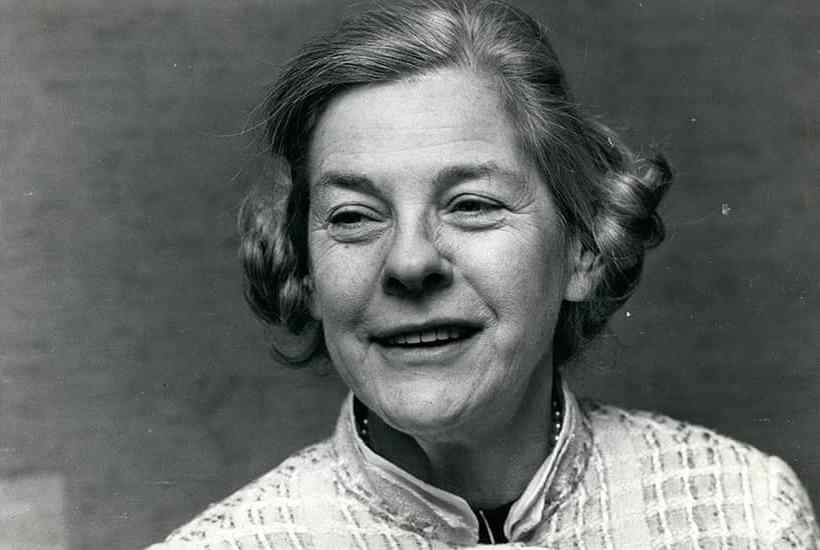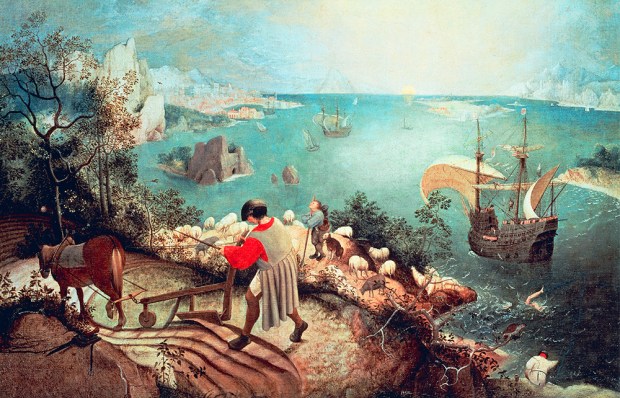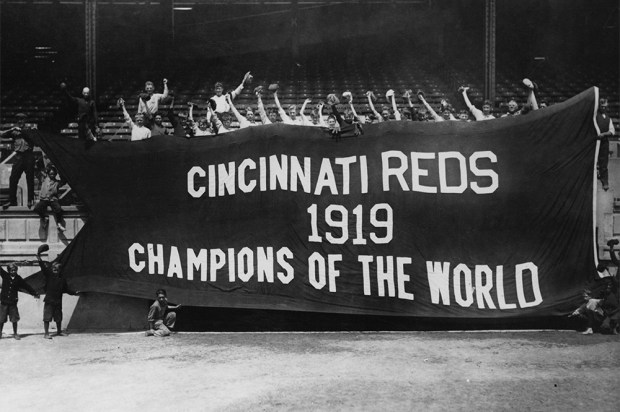In Competition No. 3238, you were invited to submit a poem about a literary feud.
Wallace Stevens’s 1936 fisticuffs with Ernest Hemingway cropped up several times in what was a modestly sized but entertaining entry. The insurance executive-poet broke his hand, in two places, in the course of an unedifying punch-up in Key West (‘Stevens hit me flush on the jaw with his Sunday punch bam like that…’).
Norman Mailer headbutting Gore Vidal backstage at the Dick Cavett talk show also loomed large, but it was a war of words between two female writers that caught the imagination of Sylvia Fairley. She heads the winning line-up below with a verse account of the spat between Lillian Hellman and Mary McCarthy that inspired Nora Ephron’s 2002 play Imaginary Friends.
The victors earn £30 apiece.
Mary McCarthy unleashed the blind rage
of Lillian Hellman, whose writing she stated
was riddled with lying on every page,
and stuck in the past; grossly overrated.
Hellman responded with litigation,
‘I’m calling my lawyer, and when I am through
you’ll swallow that bullshit; your reputation
won’t count for a dollar – it’s war, and I’ll sue!
‘You’re going to pay for this slander, you bitch!
Two million or more, or I’m not satisfied,
if you’re messing with me, then you gotta be rich!’
– but before it could happen she dropped down and died.
‘I still say her every darn word was a lie,’
said McCarthy. ‘And now all my plans are cut short,
that talentless charlatan would go and die,
I wanted to see her demolished in court.’
Sylvia Fairley
Competing authors scream and rage,
Trade derogations on the page,
Breathe innuendo, bile and spite,
Or even shed their coats and fight.
Was it a case of writer’s block
When Hemingway punched Stevens’ clock
Or envy of the poet’s scope,
His talent for the drop-dead trope?
And Norman Mailer – picture this –
Gave Gore Vidal a Glasgow kiss,
As if to banish pangs of dread
By going promptly head to head.
Though there is little bloodshed when
Assault proves mightier than the pen,
Male egos and testosterone
Make authorship a combat zone.
Basil Ransome-Davies
Romantic poets, you would think, were placid dreamers plying ink,
not subject to the scandal sheets – but check out Byron and John Keats.
Much ado there was, God wot. George had posh blood, Keats did not.
Keats praised George, the ‘dying swan’; lines that George would vomit on.
Byron had his rock-star looks, Keats coughed gently over books.
Byron shagged from dusk ’til dawn, Keats swooned over Fanny Brawne,
Keats claimed great imagination, Byron sneered in condemnation,
calling Keats a Cockney slob (Byron was a raging snob).
Byron fumed with jealousy, Keats thought Byron sans merci,
Keats called Byron overrated; ‘tall, hot lords get celebrated!’
Mud was flung without regret, even though they never met.
Like the Gallaghers they fought, insults like a national sport.
When Keats died, some blamed reviews. Byron chuckled at the news;
‘Death by criticism? Bunk! I laugh at critics and get drunk.’
Both are dead, their quarrels ended, poets evermore unfriended.
Feuds rage on, hot words exchanged. With rival authors, nothing’s changed.
Janine Beacham
C.P. Snow and F.R. Leavis
spanned the cultural divide.
Snow’s Two Cultures – please, believe this –
pushed the scientific side.
Spitting bile, F.R. (a bruiser,
champ in literary debate)
called C.P. an all-round loser:
dreary novels, second-rate.
Snow, a sage, refused to battle
in this tea-cup-storm affair
with Leavis and his libellous prattle.
Who now reads them, who’d now care?
Just a footnote in the blistery
academic to and fro;
both long-dead, consigned to history.
F.R. Leavis, C.P. Snow.
D.A. Prince
At first they had a common cause
Until each asked what freedom was
And then their friendly days were done:
One needed bounds, the other none.
For Sartre might was right, and Red
Was how true freedom could be spread
But Camus treated with revulsion
The violence in power’s expulsion.
It was impossible to hide
Their existentialist divide
And French folk followed day by day
The twists in this absurd affray.
Though Sartre had some views suppressed
When Russians entered Budapest
He still gave force his approbation,
Rejecting Camus’s moderation.
Max Ross
No. 3241: vernal
You are invited to submit a spring triolet. Please email entries to lucy@spectator.co.uk by midday on 16 March.
Got something to add? Join the discussion and comment below.
Get 10 issues for just $10
Subscribe to The Spectator Australia today for the next 10 magazine issues, plus full online access, for just $10.
You might disagree with half of it, but you’ll enjoy reading all of it. Try your first month for free, then just $2 a week for the remainder of your first year.














Comments
Don't miss out
Join the conversation with other Spectator Australia readers. Subscribe to leave a comment.
SUBSCRIBEAlready a subscriber? Log in